
Campeche: The Gem of the Yucatán Peninsula
Campeche, a coastal city on the Yucatán Peninsula, is a hidden gem waiting to be discovered. With its colorful colonial architecture, ancient Mayan ruins, and rich cultural history, Campeche offers a unique blend of the old and new. As you stroll through its cobblestone streets, you will be transported back in time, while still enjoying the modern amenities that make your stay comfortable. The city's historic center, a UNESCO World Heritage Site, is a must-visit. Here, you will find well-preserved colonial buildings, charming plazas, and the impressive city walls that once protected Campeche from pirate attacks. The pastel-colored facades of the buildings create a picturesque setting, perfect for photography enthusiasts. Beyond the city center, Campeche's natural beauty beckons. The nearby Calakmul Biosphere Reserve, one of the largest tropical forests in Mexico, is home to diverse wildlife and ancient Mayan ruins. Don't miss the chance to explore the Edzná archaeological site, where you can marvel at the impressive Temple of the Five Floors and other ancient structures. Campeche's culinary scene is another highlight. Savor local dishes such as pan de cazón (a layered tortilla dish with shark), tamales, and cochinita pibil (slow-roasted pork). The city's markets and restaurants offer a taste of traditional Yucatecan cuisine that will leave your taste buds delighted. Whether you are a history buff, nature lover, or foodie, Campeche has something for everyone. Its warm hospitality and vibrant culture make it an unforgettable destination.
Local tips in Campeche
- Visit the city center early in the morning to avoid the crowds and capture the best photos.
- Wear comfortable shoes, as the cobblestone streets can be uneven.
- Try to visit the Edzná archaeological site early in the day to avoid the midday heat.
- Bring insect repellent if you plan to explore the Calakmul Biosphere Reserve.
- Make sure to taste local dishes such as pan de cazón and cochinita pibil at traditional markets.
Campeche: The Gem of the Yucatán Peninsula
Campeche, a coastal city on the Yucatán Peninsula, is a hidden gem waiting to be discovered. With its colorful colonial architecture, ancient Mayan ruins, and rich cultural history, Campeche offers a unique blend of the old and new. As you stroll through its cobblestone streets, you will be transported back in time, while still enjoying the modern amenities that make your stay comfortable. The city's historic center, a UNESCO World Heritage Site, is a must-visit. Here, you will find well-preserved colonial buildings, charming plazas, and the impressive city walls that once protected Campeche from pirate attacks. The pastel-colored facades of the buildings create a picturesque setting, perfect for photography enthusiasts. Beyond the city center, Campeche's natural beauty beckons. The nearby Calakmul Biosphere Reserve, one of the largest tropical forests in Mexico, is home to diverse wildlife and ancient Mayan ruins. Don't miss the chance to explore the Edzná archaeological site, where you can marvel at the impressive Temple of the Five Floors and other ancient structures. Campeche's culinary scene is another highlight. Savor local dishes such as pan de cazón (a layered tortilla dish with shark), tamales, and cochinita pibil (slow-roasted pork). The city's markets and restaurants offer a taste of traditional Yucatecan cuisine that will leave your taste buds delighted. Whether you are a history buff, nature lover, or foodie, Campeche has something for everyone. Its warm hospitality and vibrant culture make it an unforgettable destination.
When is the best time to go to Campeche?
Iconic landmarks you can’t miss
Independence Square
Discover the vibrant essence of Campeche at Independence Square, a historic city park filled with local culture, lush gardens, and lively atmosphere.
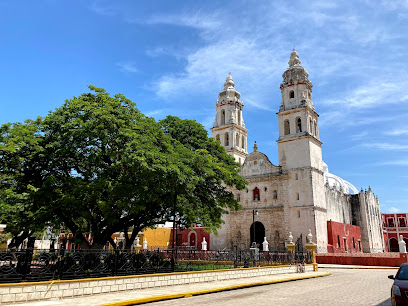
Campeche Archaeological Museum, Fort San Miguel
Explore the rich Mayan heritage at Campeche Archaeological Museum in Fort San Miguel, where history and stunning views converge.
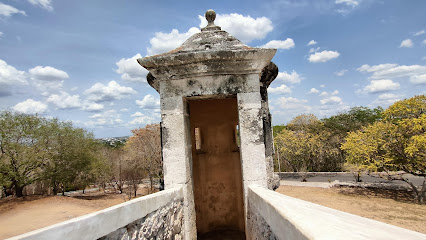
Malecón de Campeche
Explore the captivating Malecón de Campeche, a coastal promenade rich in history, culture, and stunning views of the Gulf.
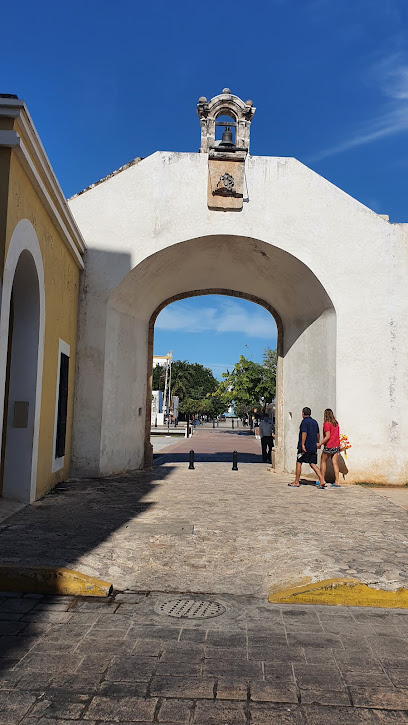
Puerta de Tierra
Discover the historical marvel of Puerta de Tierra, a UNESCO World Heritage site, where history meets stunning coastal views in Campeche.
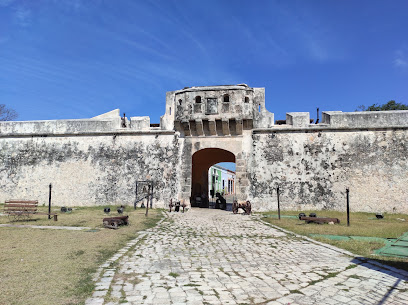
Gamma Campeche Malecón
Experience the beauty of Campeche at Gamma Campeche Malecón, where comfort meets the charm of coastal living.
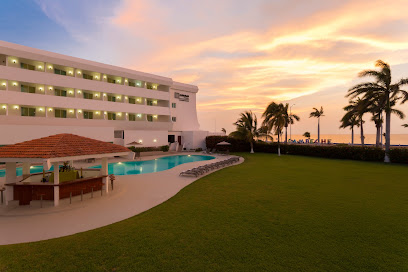
Letras Campeche
Explore the stunning vistas and rich history at Letras Campeche, a breathtaking observation deck in San Francisco de Campeche, Mexico.
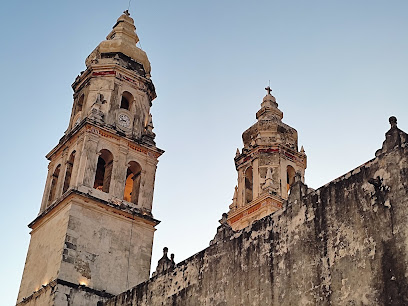
Edzna Archaeological Zone
Unveil the secrets of the ancient Mayan civilization at Edzna Archaeological Zone, a stunning historical site in Campeche, Mexico.
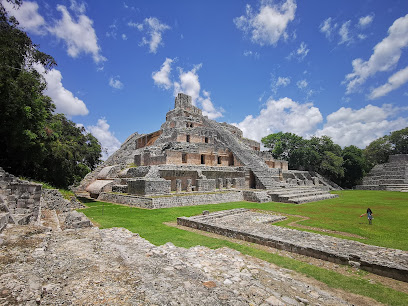
Puerta de Mar
Discover the historical charm of Puerta de Mar, a key landmark in Campeche that reveals the city's rich maritime heritage and stunning coastal views.
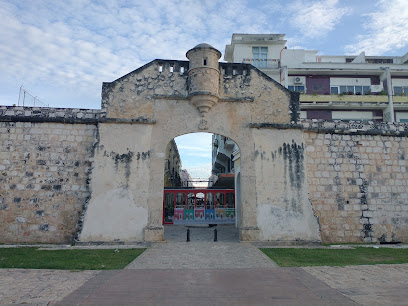
Parque Campeche
Explore Parque Campeche, a vibrant playground and tourist attraction in San Francisco de Campeche, perfect for families and outdoor lovers seeking fun and relaxation.
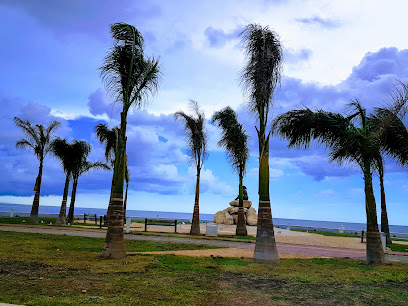
Museo de la Ciudad (Baluarte de San Carlos)
Discover the vibrant history and culture of Campeche at the Museo de la Ciudad, a national museum nestled in a historic fortification.
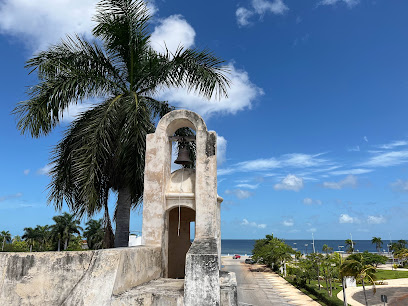
Baluarte de San Pedro
Explore the historical Baluarte de San Pedro in Campeche, a fortress rich in history and breathtaking views overlooking the Gulf.
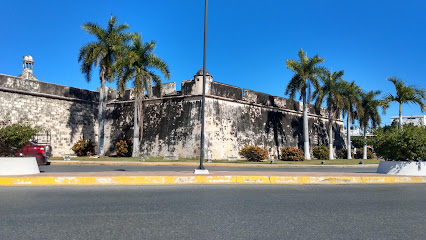
Centro Cultural Casa No. 6
Experience the vibrant arts and culture of Campeche at Centro Cultural Casa No. 6 – a must-visit cultural center for every traveler.
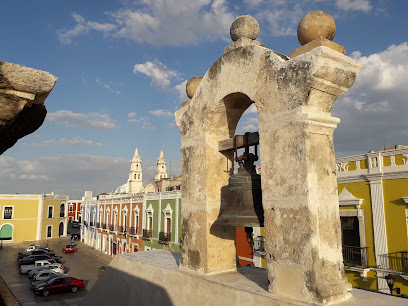
Hacienda Puerta Campeche, an IHG Hotel, Campeche
Experience luxury and cultural immersion at Hacienda Puerta Campeche, a serene hotel in the heart of historic Campeche, Mexico.
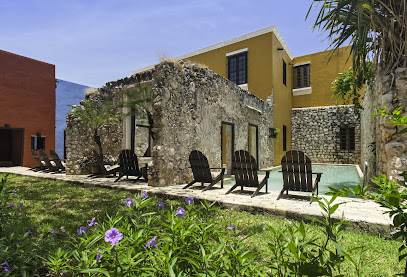
Xmuch-Haltún Botanical Garden
Explore the enchanting Xmuch-Haltún Botanical Garden in Campeche, where nature and history blend into a serene oasis for tourists and nature lovers alike.
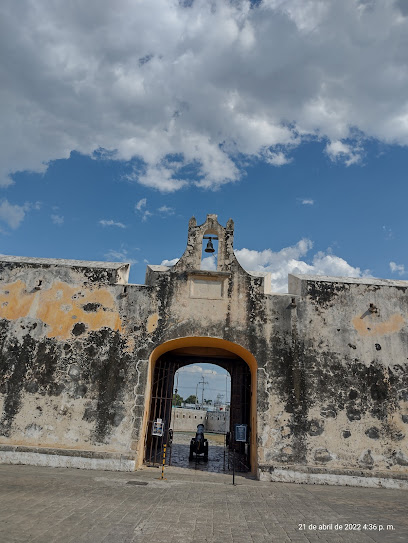
Baluarte de San Francisco
Discover the historic Baluarte de San Francisco, a UNESCO World Heritage site in Campeche, rich in culture, history, and breathtaking views.
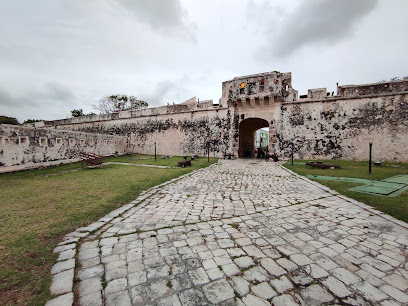
Unmissable attractions to see
Independence Square
Explore Independence Square in Campeche, a lively city park rich in history, culture, and stunning colonial architecture, perfect for relaxation and discovery.
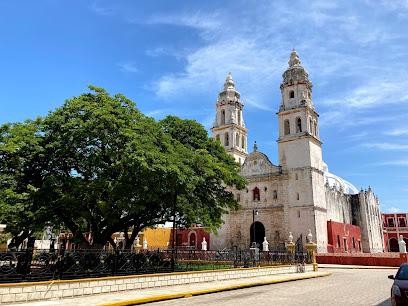
Campeche Archaeological Museum, Fort San Miguel
Explore the ancient world at Campeche Archaeological Museum, Fort San Miguel, a must-visit for history enthusiasts and curious travelers alike.
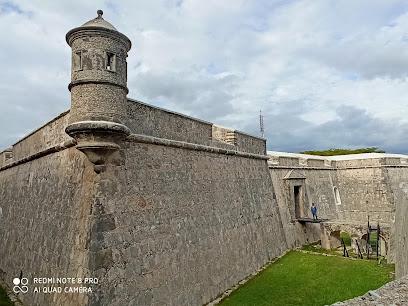
Malecón de Campeche
Experience the vibrant history and breathtaking views of Malecón de Campeche, a captivating waterfront destination in Mexico.
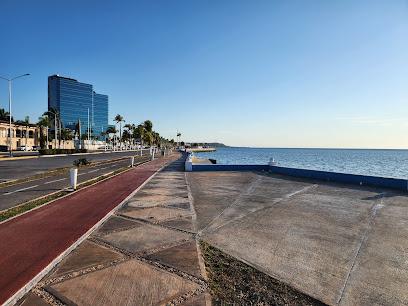
Playa Bonita
Experience the beauty and tranquility of Playa Bonita, a stunning public beach in Campeche, Mexico, perfect for relaxation and family fun.
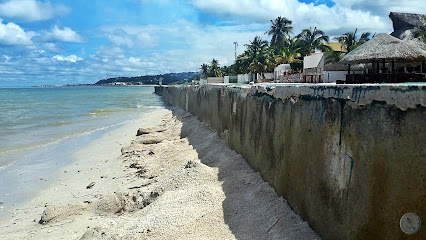
Puerta de Tierra
Explore the historical marvel of Puerta de Tierra, a majestic fortress in Campeche that captures the essence of colonial heritage and offers stunning views.
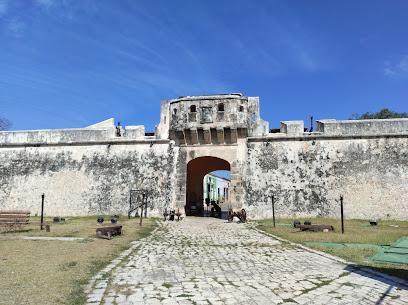
Letras Campeche
Discover the breathtaking views and cultural significance of Letras Campeche, a must-visit observation deck in the heart of San Francisco de Campeche.
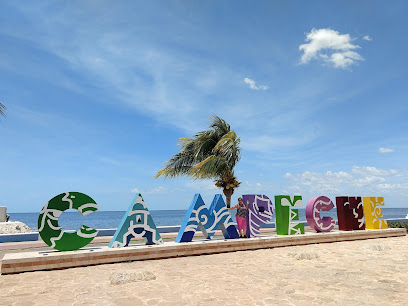
Museo de Arqueología Subacuática Fuerte de San José
Explore the rich underwater archaeology at Museo de Arqueología Subacuática Fuerte de San José, a historical gem in Campeche, Mexico.
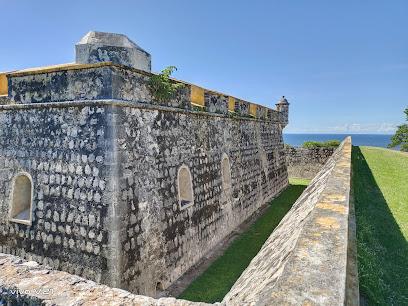
Ximbal Recreational Park
Explore Ximbal Recreational Park: a vibrant retreat in Campeche, blending nature, athletics, and fun for the whole family.
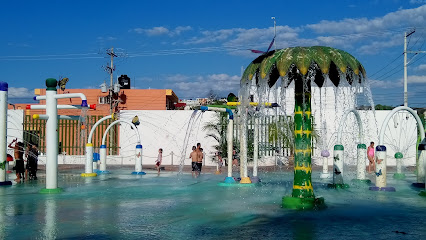
Catedral de Nuestra Señora de la Inmaculada Concepción
Discover the captivating beauty and historical significance of Catedral de Nuestra Señora de la Inmaculada Concepción in Campeche, a treasure of colonial architecture.
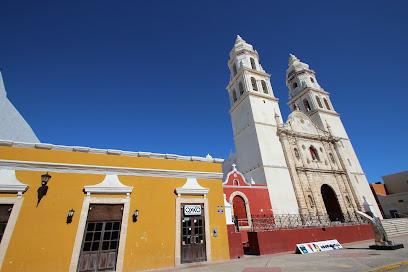
Parque Campeche
Discover the beauty and vibrancy of Parque Campeche, a perfect blend of relaxation and recreation in the heart of San Francisco de Campeche, Mexico.
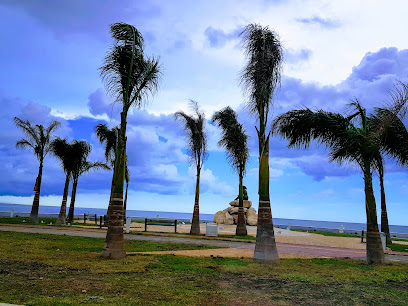
Baluarte de San Pedro
Discover the Baluarte de San Pedro, a historical fortress in Campeche that showcases stunning views and rich colonial heritage.
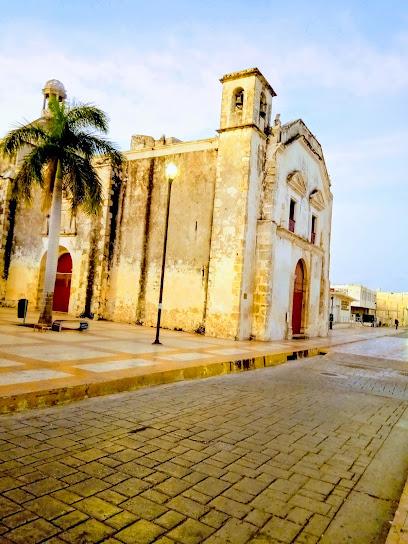
Baluarte de San Pedro
Explore the historic Baluarte de San Pedro in Campeche, a stunning fortification showcasing the city’s rich colonial heritage and breathtaking views.
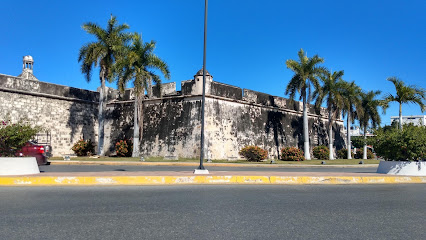
Museo de Arquitectura Maya Baluarte de Nuestra Señora de la Soledad
Delve into the ancient artistry of Mayan civilization at Museo de Arquitectura Maya, a captivating museum in Campeche showcasing stunning architectural heritage.
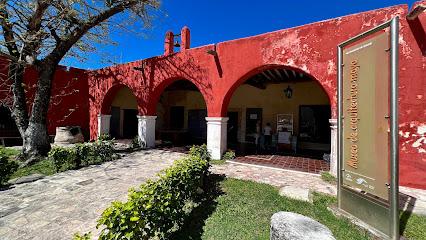
Centro Cultural Casa No. 6
Immerse yourself in the rich heritage and vibrant culture at Centro Cultural Casa No. 6 in San Francisco de Campeche, a must-visit for culture enthusiasts.
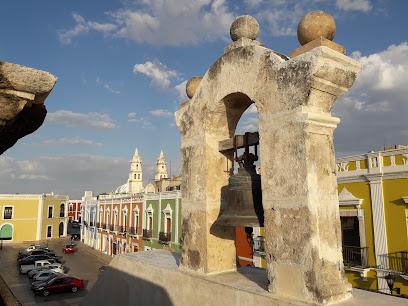
Xmuch-Haltún Botanical Garden
Explore the enchanting Xmuch-Haltún Botanical Garden in Campeche, where vibrant flora meets rich historical heritage for an unforgettable experience.
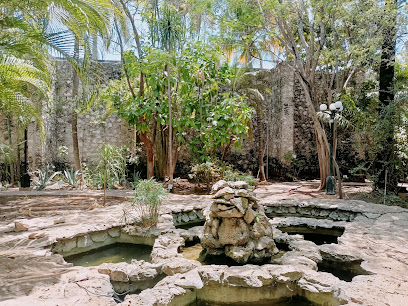
Essential places to dine
La Palapa del Tio Fito
Experience authentic coastal cuisine at La Palapa del Tio Fito in Campeche – a seafood lover's paradise with fresh flavors and stunning views.
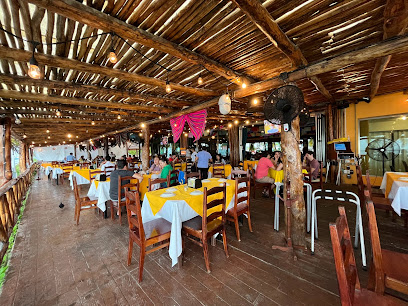
Marganzo Restaurante
Experience authentic Mexican flavors at Marganzo Restaurante, where every meal is a celebration of local cuisine in San Francisco de Campeche.
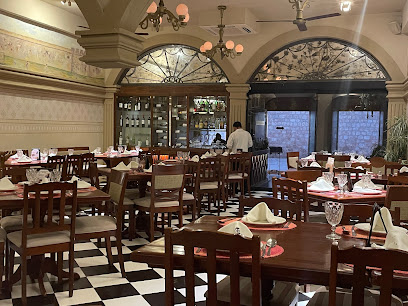
La Parroquia
Discover authentic Mexican cuisine at La Parroquia in Campeche – where every meal tells a story of tradition and flavor.
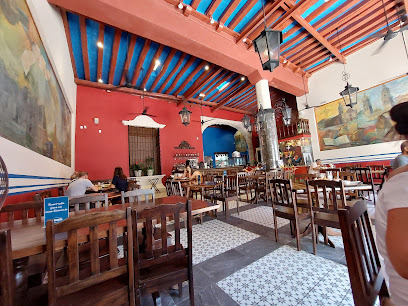
Cenaduría Portales de San Francisco
Experience authentic Mexican flavors at Cenaduría Portales de San Francisco - where tradition meets taste in Campeche.
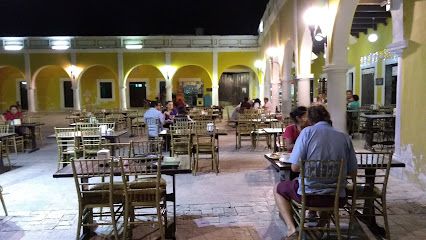
Lapa Lapa Campeche
Discover the culinary delights of grilled specialties at Lapa Lapa Campeche - where flavor meets tradition in a lively setting.
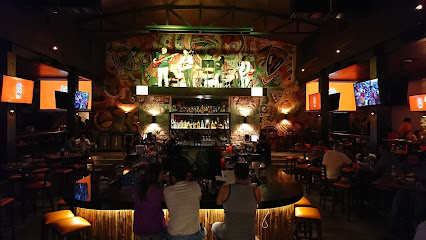
Toks Galerías Campeche
Experience authentic Mexican flavors at Toks Galerías Campeche - your destination for delicious breakfasts and warm hospitality.
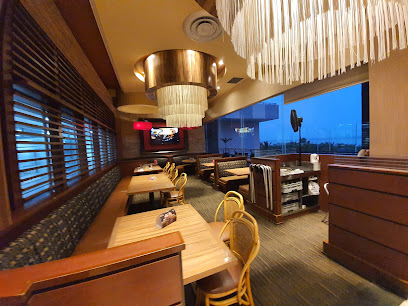
El Langostino
Discover El Langostino in Campeche - where fresh seafood meets authentic Mexican hospitality.
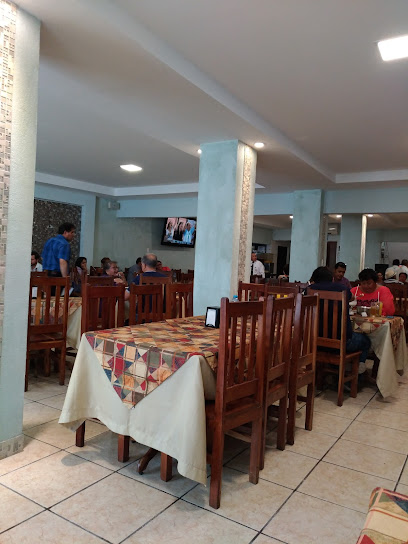
Restaurant Los Abuelos
Discover the heart of Yucatecan cuisine at Restaurant Los Abuelos in Campeche - a delightful dining experience awaits!
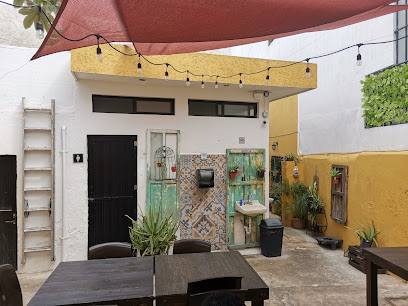
La María Cocina Peninsular
Experience authentic Mexican cuisine at La María Cocina Peninsular - where every dish tells a story of tradition and flavor.
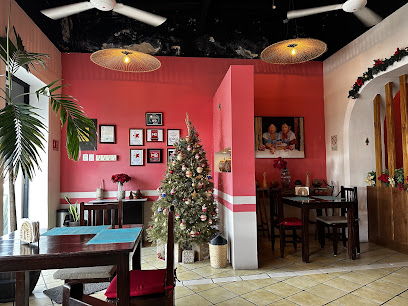
Los Delfines
Discover exquisite seafood delights at Los Delfines in San Francisco de Campeche – where every bite tells a story of oceanic flavors.
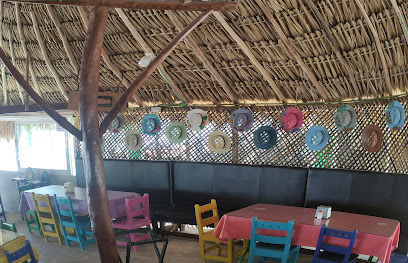
Patroni's Bar
Discover delicious grilled delights and artisan pizzas at Patroni's Bar in San Francisco de Campeche - where flavor meets fun.
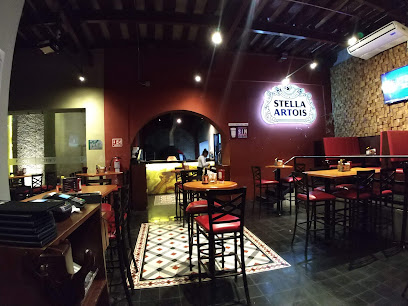
La Recova
Experience authentic Mexican flavors at La Recova in San Francisco de Campeche—where tradition meets culinary excellence.
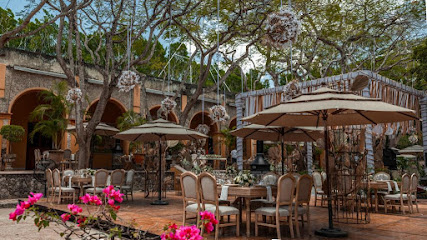
El Bastión de Campeche
Experience authentic Mexican breakfast at El Bastión de Campeche - where tradition meets flavor in a cozy atmosphere.
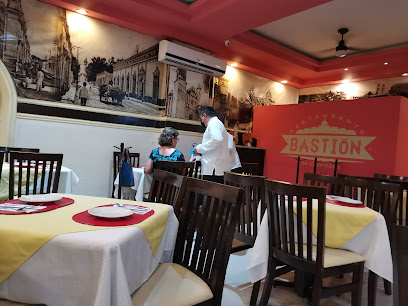
La Recova Cincuenta y Nueve
Experience authentic Mexican cuisine at La Recova Cincuenta y Nueve in Campeche's historic center – where every meal tells a story.
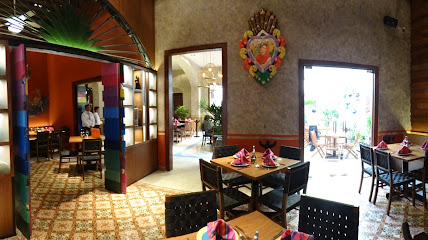
La Pigua
Discover La Pigua in San Francisco de Campeche: where fresh seafood meets exquisite culinary artistry in an inviting atmosphere.
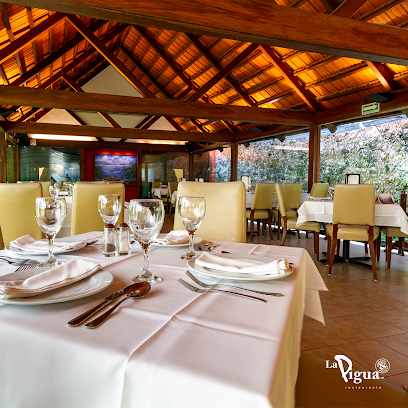
Markets, malls and hidden boutiques
Galerías Campeche
Explore Galerías Campeche: A premier shopping mall filled with stores, restaurants, and entertainment, perfect for every tourist's shopping experience.
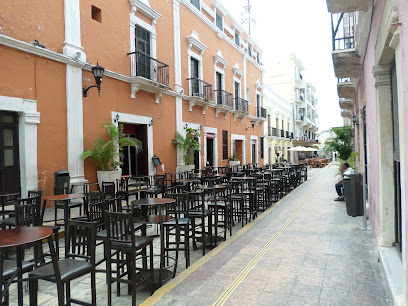
Casa de Artesanias Tukulna
Explore Casa de Artesanias Tukulna in Campeche for authentic handicrafts and a glimpse into the region's rich cultural heritage.
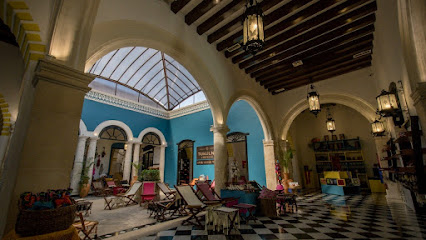
Origen Specialty Coffee
Experience the best of Campeche's coffee culture at Origen Specialty Coffee, where every cup tells a story.
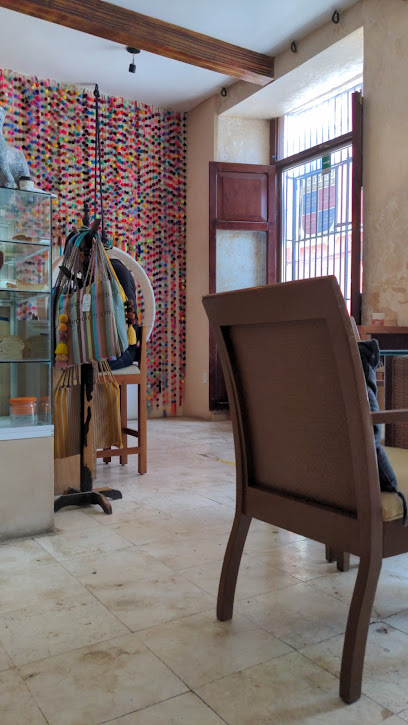
Bazar Artesanal Campeche
Explore the vibrant Bazar Artesanal Campeche for unique handicrafts and immerse yourself in local culture in the heart of Campeche.
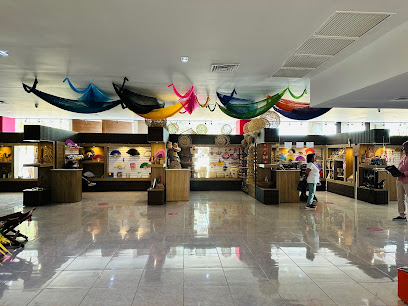
JWJ Iluminacion Campeche Central
Explore a stunning array of lighting designs at JWJ Iluminacion Campeche Central, where local culture meets modern elegance in every fixture.
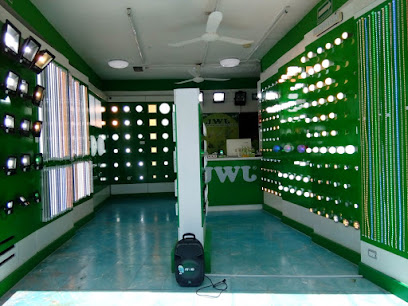
NATURA 2000
Discover organic delights and local flavors at NATURA 2000, your go-to health food store in the heart of Campeche.
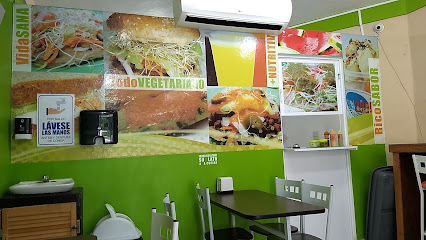
Cubrebocas campeche
Discover the best in health and beauty at Cubrebocas Campeche, where quality meets tradition in the heart of San Francisco de Campeche.
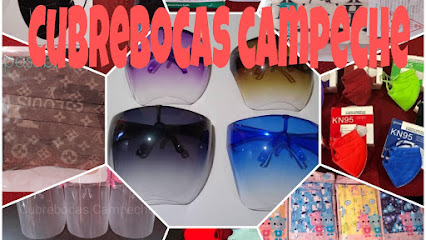
Boutique Juliette
Explore Boutique Juliette in Campeche for unique gifts and stylish clothing that reflect the local culture and craftsmanship.

Felles Boutique
Explore Felles Boutique in Campeche for a blend of traditional Mexican design and modern fashion, perfect for stylish souvenirs.

Mavera Collection
Discover Mavera Collection in San Francisco de Campeche for a unique body piercing experience with expert artists in a welcoming environment.
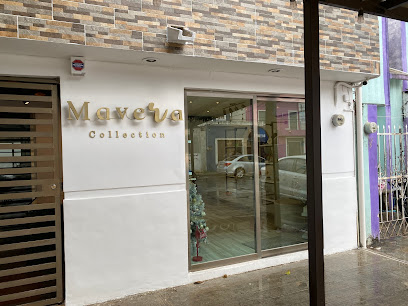
Floreria La Boutique D Sara
Explore the vibrant floral artistry at Floreria La Boutique D Sara in Campeche, where every arrangement tells a story of local beauty.
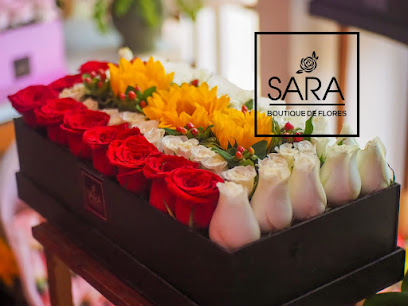
Teddy Stamping
Discover unique local crafts and souvenirs at Teddy Stamping in Campeche, embodying the spirit of Mexican artistry.
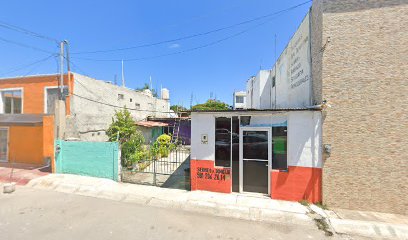
Bonita. MX
Explore Bonita, a charming clothing store in Campeche, offering unique styles and authentic local fashion for every traveler.

Arte Mexicano Artesanías y Boutique
Explore the cultural richness of Campeche at Arte Mexicano Artesanías y Boutique, offering handcrafted clothing and unique artisan crafts.
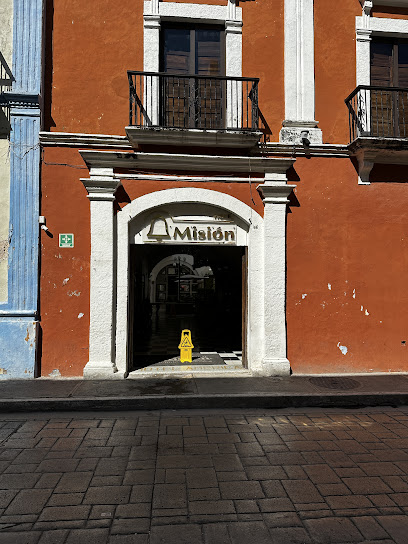
Globos De Cantoya Campeche
Explore the vibrant fashion at Globos De Cantoya Campeche, where traditional style meets modern trends in a unique clothing store experience.
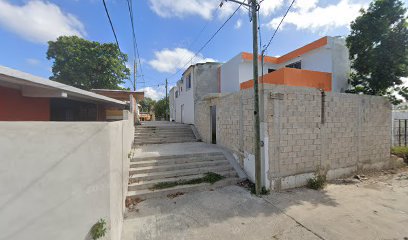
Essential bars & hidden hideouts
McCarthy's Irish Pub
Discover the vibrant atmosphere of McCarthy's Irish Pub, where authentic Irish cuisine meets local charm in beautiful Campeche.
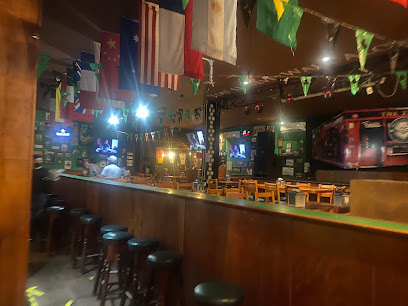
LA CHOPERIA 59 CAMPECHE CENTRO HISTORICO
Discover the vibrant culinary scene at La Choperia 59, a premier grill restaurant in Campeche's historic center, offering authentic Mexican flavors.
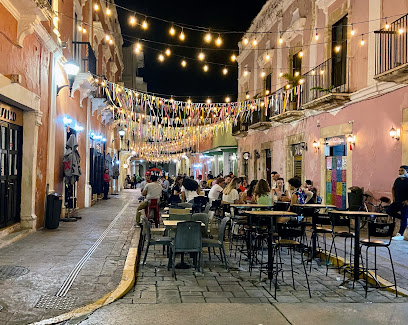
Patroni's Bar
Discover the culinary delights of Patroni's Bar in Campeche, where grilled perfection meets pizza excellence in a vibrant atmosphere.
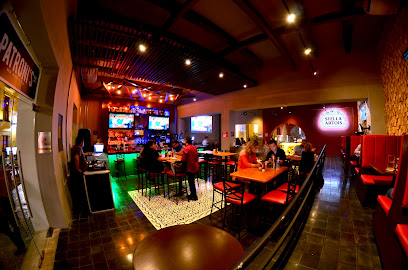
Xtabay Taberna y Restaurante
Discover the flavors of Campeche at Xtabay Taberna y Restaurante, where craft beer meets traditional Mexican cuisine in a vibrant setting.
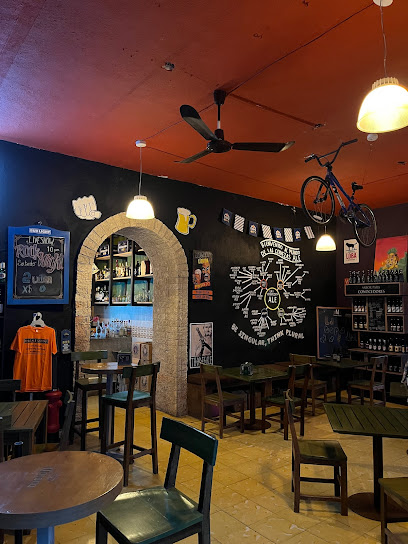
Fata Morgana
Experience the vibrant nightlife at Fata Morgana, a top bar in the heart of Campeche offering exquisite cocktails and a lively atmosphere.
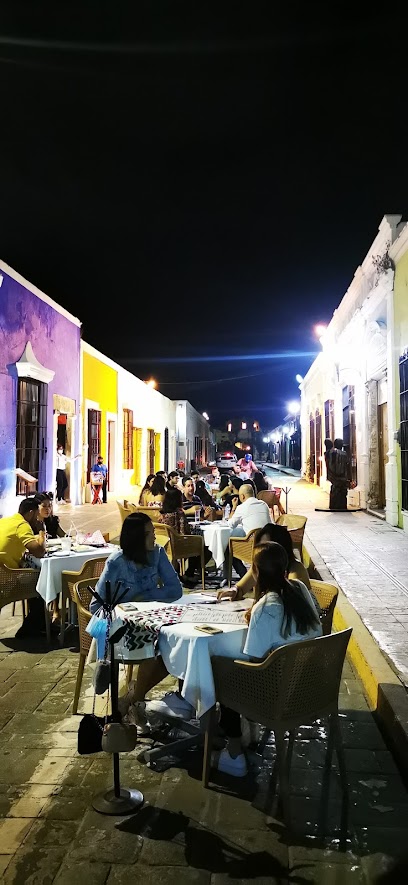
Barbazul
Experience unforgettable nights at Barbazul, a vibrant bar in San Francisco de Campeche, offering refreshing drinks and a lively atmosphere.
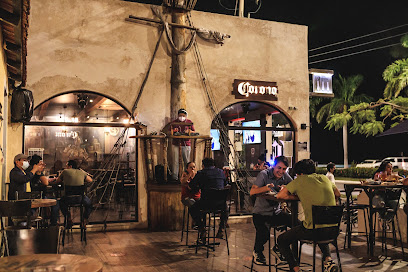
Ancestral Boneless & Beer
Experience the vibrant nightlife of Campeche at Ancestral Boneless & Beer, where delicious food meets refreshing drinks in a lively atmosphere.
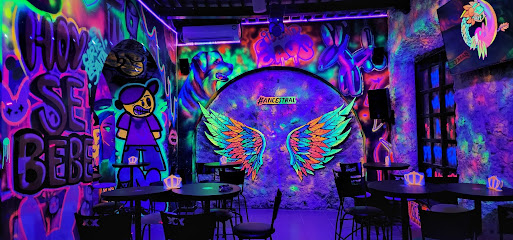
Nativo Bar
Experience the vibrant atmosphere and authentic flavors at Nativo Bar, the premier grill restaurant in San Francisco de Campeche.
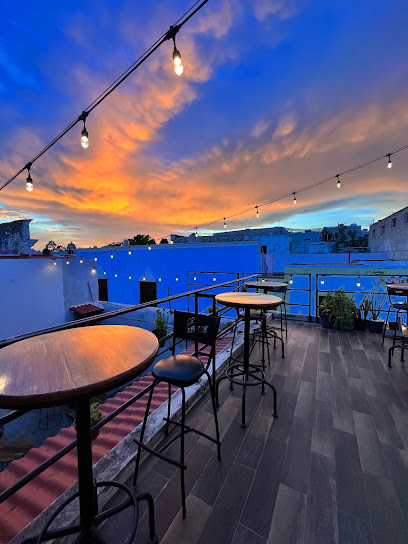
Whiskylucan Campeche
Experience the vibrant nightlife and authentic Mexican cuisine at Whiskylucan Campeche, the perfect bar for tourists in search of local flavor.
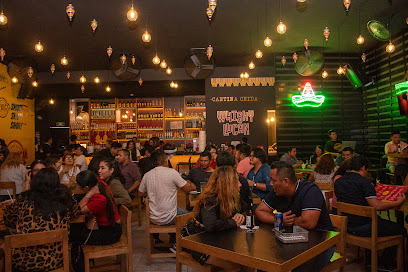
BAR WITCHES
Experience the vibrant nightlife of Campeche at Bar Witches, where local flavors meet a lively atmosphere for an unforgettable evening.
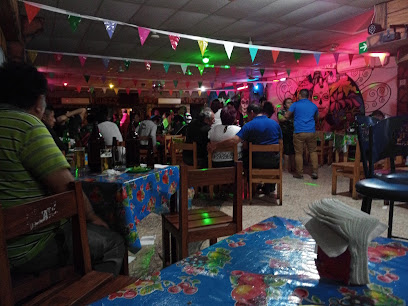
Bar La Pelotera
Experience the vibrant nightlife of Campeche at Bar La Pelotera, where refreshing drinks and local charm await in a lively atmosphere.
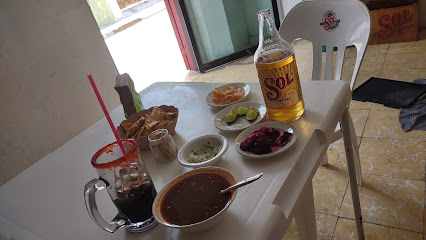
Cotorritos Campeche
Experience the vibrant fusion of local flavors and nightlife at Cotorritos Campeche, a must-visit grill and disco in San Francisco de Campeche.
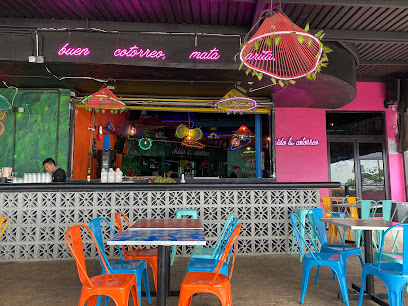
Bar El Purgatorio
Experience vibrant nightlife and local flavors at Bar El Purgatorio in Campeche, where every night is a celebration of culture and camaraderie.

Coco Bongo Paradise
Experience vibrant nightlife at Coco Bongo Paradise, a premier bar and restaurant in Campeche, renowned for electrifying shows and delectable cuisine.
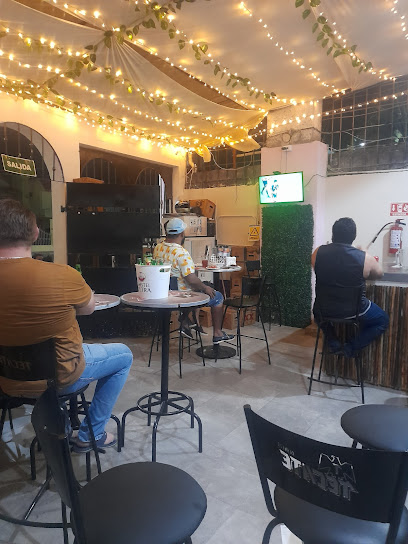
Local Phrases
-
- HelloHola
[oh-lah] - GoodbyeAdiós
[ah-dee-ohs] - YesSí
[see] - NoNo
[noh] - Please/You're welcomePor favor/De nada
[pohr fah-bohr/deh nah-dah] - Thank youGracias
[grah-see-ahs] - Excuse me/SorryPerdón/Lo siento
[pehr-dohn/loh see-ehn-toh] - How are you?¿Cómo estás?
[koh-moh ehs-tahs] - Fine. And you?Bien. ¿Y tú?
[byehn. ee too] - Do you speak English?¿Hablas inglés?
[ah-blahs een-glehs] - I don't understandNo entiendo
[noh ehn-tee-ehn-doh]
- HelloHola
-
- I'd like to see the menu, pleaseMe gustaría ver el menú, por favor
[meh goos-tah-ree-ah behr ehl meh-noo, pohr fah-bohr] - I don't eat meatNo como carne
[noh koh-moh kahr-neh] - Cheers!¡Salud!
[sah-lood] - I would like to pay, pleaseMe gustaría pagar, por favor
[meh goos-tah-ree-ah pah-gahr, pohr fah-bohr]
- I'd like to see the menu, pleaseMe gustaría ver el menú, por favor
-
- Help!¡Ayuda!
[ah-yoo-dah] - Go away!¡Vete!
[veh-teh] - Call the Police!¡Llama a la policía!
[yah-mah ah lah poh-lee-see-ah] - Call a doctor!¡Llama a un doctor!
[yah-mah ah oon dohk-tohr] - I'm lostEstoy perdido
[ehs-toy pehr-dee-doh] - I'm illEstoy enfermo
[ehs-toy ehn-fehr-moh]
- Help!¡Ayuda!
-
- I'd like to buy...Me gustaría comprar...
[meh goos-tah-ree-ah kohm-prahr...] - I'm just lookingSolo estoy mirando
[soh-loh ehs-toy meer-ahn-doh] - How much is it?¿Cuánto cuesta?
[kwan-toh kwehs-tah] - That's too expensiveEso es demasiado caro
[eh-soh ehs deh-mah-see-ah-doh kahr-oh] - Can you lower the price?¿Puede bajar el precio?
[pweh-deh bah-hahr ehl pree-syoh]
- I'd like to buy...Me gustaría comprar...
-
- What time is it?¿Qué hora es?
[keh oh-rah ehs] - It's one o'clockEs la una
[ehs lah oo-nah] - Half past (10)Media (10)
[meh-dyah (deez ee-syehs)] - MorningMañana
[mah-nyah-nah] - AfternoonTarde
[tahr-deh] - EveningNoche
[noh-cheh] - YesterdayAyer
[ah-yehr] - TodayHoy
[oy] - TomorrowMañana
[mah-nyah-nah] - 1Uno
[oo-noh] - 2Dos
[dohs] - 3Tres
[trehs] - 4Cuatro
[kwa-troh] - 5Cinco
[seen-koh] - 6Seis
[says] - 7Siete
[syeh-teh] - 8Ocho
[oh-choh] - 9Nueve
[nweh-veh] - 10Diez
[dyehs]
- What time is it?¿Qué hora es?
-
- Where's a/the...?¿Dónde está el/la...?
[dohn-deh ehs-tah ehl/lah] - What's the address?¿Cuál es la dirección?
[kwal ehs lah dee-rek-syohn] - Can you show me (on the map)?¿Puedes mostrarme (en el mapa)?
[pweh-dehs mohs-trar-meh (ehn ehl mah-pah)] - When's the next (bus)?¿Cuándo es el próximo (autobús)?
[kwan-doh ehs ehl proh-see-moh (ow-toh-boos)] - A ticket (to ....)Un boleto (a ...)
[oon boh-leh-toh (ah ...)]
- Where's a/the...?¿Dónde está el/la...?
History of Campeche
-
Campeche was founded on October 4, 1540, by Spanish conquistadors led by Francisco de Montejo. The city was established on the site of the ancient Mayan city of Can Pech, which had been an important trading post for the Maya civilization. The Spanish aimed to create a fortified settlement to protect their interests and facilitate further colonization.
-
Before the arrival of the Spanish, the region was inhabited by the Maya people, who established the city of Can Pech around 1000 AD. The Maya in this area were skilled traders, craftsmen, and architects, leaving behind a rich cultural legacy that includes intricate stone carvings, ceremonial centers, and expansive trading networks. Several Mayan ruins, such as Edzná, can still be explored today.
-
During the 17th century, Campeche was frequently attacked by pirates due to its wealth and strategic location. To protect the city, the Spanish Crown ordered the construction of extensive fortifications. By the late 1600s, the city was encircled by massive walls and protected by several forts, including the notable Fort San Miguel and Fort San José el Alto. These fortifications are well-preserved and are a testament to the city's turbulent past.
-
Throughout the 18th century, Campeche prospered as a major port city. It became a key hub for the export of valuable resources such as logwood, which was used to produce dyes. The city's prosperity attracted settlers and merchants from Europe, leading to a blend of colonial architectural styles that can still be seen in the beautifully preserved historical center.
-
Campeche played a role in the Mexican War of Independence, which began in 1810. After Mexico gained independence in 1821, Campeche continued to grow and modernize. The 19th century saw improvements in infrastructure, such as the introduction of railroads and modern port facilities, which further cemented the city's status as an important economic center in the region.
-
In 1999, the historic fortified town of Campeche was designated a UNESCO World Heritage Site. This recognition highlights the city's well-preserved colonial architecture, its unique blend of Spanish and Mayan influences, and its significant role in the history of the region. The city's colorful facades, cobblestone streets, and historic landmarks make it a vibrant destination for history enthusiasts and travelers alike.
Campeche Essentials
-
Campeche is served by the Ing. Alberto Acuña Ongay International Airport, which is approximately 8 kilometers from the city center. Direct flights are available from major cities in Mexico like Mexico City and Cancun. For international travelers, connecting flights through Mexico City are a common route. Alternatively, you can reach Campeche by bus from other cities in the Yucatán Peninsula, such as Mérida, which is about a 2-hour drive away.
-
Within Campeche, taxis and ride-sharing services like Uber are readily available and convenient for getting around. Public buses are also an option for traveling within the city and to nearby towns. For a more leisurely experience, consider renting a bicycle to explore the historic center. Renting a car is advisable for those looking to explore more remote areas and archaeological sites outside the city.
-
The official currency in Campeche is the Mexican Peso (MXN). Credit and debit cards are widely accepted in most hotels, restaurants, and shops in the city. However, it is advisable to carry some cash for smaller establishments and markets. ATMs are available throughout the city, but it’s wise to withdraw sufficient cash before traveling to more rural areas.
-
Campeche is generally considered a safe destination for tourists. However, it’s advisable to take standard precautions such as avoiding poorly lit areas at night and keeping an eye on personal belongings in crowded places. Areas with higher crime rates targeting tourists include the outskirts of the city and some less frequented neighborhoods. Always use reputable transportation services and avoid walking alone at night.
-
In case of emergency, dial 911 for immediate assistance. The city has several hospitals and clinics that provide quality medical care. It’s highly recommended to have travel insurance that covers medical emergencies. For minor health issues, there are numerous pharmacies where you can purchase over-the-counter medications. The local police station is also available for any legal assistance you may require.
-
Fashion: Do dress comfortably but modestly, especially when visiting religious sites. Avoid wearing overly revealing clothing. Religion: Do respect local customs and traditions. Always cover your shoulders and knees when entering churches. Public Transport: Do be respectful and give up your seat to elderly passengers. Don’t eat or drink on public transport. Greetings: Do greet people with a handshake or a slight nod. A friendly 'Hola' is usually well-received. Eating & Drinking: Do try local delicacies and accept food offerings graciously. Don’t refuse hospitality, as it is considered impolite.
-
To experience Campeche like a local, visit the local markets where you can buy fresh produce and traditional goods. Engage with locals, as they are often friendly and willing to share stories about the city’s history and culture. Don’t miss the evening light and sound show at the historic city walls. For a unique dining experience, try the local seafood at one of the waterfront restaurants. Additionally, explore the lesser-known beaches and fishing villages for a more authentic experience.
Trending Landmark in Campeche
-
Independence Square
-
Campeche Archaeological Museum, Fort San Miguel
-
Malecón de Campeche
-
Puerta de Tierra
-
Gamma Campeche Malecón
-
Letras Campeche
-
Edzna Archaeological Zone
-
Puerta de Mar
-
Parque Campeche
-
Museo de la Ciudad (Baluarte de San Carlos)
-
Baluarte de San Pedro
-
Centro Cultural Casa No. 6
-
Hacienda Puerta Campeche, an IHG Hotel, Campeche
-
Xmuch-Haltún Botanical Garden
-
Baluarte de San Francisco
Nearby Cities to Campeche
-
Things To Do in Corozal Town
-
Things To Do in Orange Walk Town
-
Things To Do in Tikal
-
Things To Do in Tulum
-
Things To Do in Flores
-
Things To Do in San Ignacio
-
Things To Do in San Pedro
-
Things To Do in Caye Caulker
-
Things To Do in Belize City
-
Things To Do in Playa del Carmen
-
Things To Do in Cozumel
-
Things To Do in Dangriga
-
Things To Do in Hopkins
-
Things To Do in Cancun
-
Things To Do in Placencia













